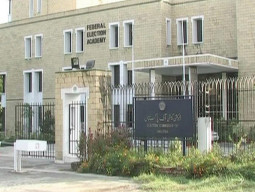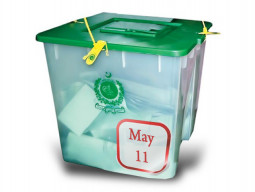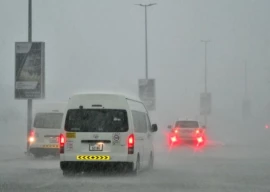
PESHAWAR:
With more than half of the polling stations declared ‘highly sensitive’ in Khyber-Pakhtunkhwa, teachers assigned election duties find themselves increasingly vulnerable.
The Election Commission of Pakistan (ECP) seems to have made things more difficult by not consulting circle heads of the education department over the duties assigned to teachers on Election Day.
Many teachers have serious reservations over the ECP’s unilateral decision because some, including women, have been assigned duties at polling stations outside their district of residence. Many teachers have refused to accept the assignments as a result, said All-Primary Teachers Association (APTA) President Malik Khalid Khan.
He said he was surprised at the move and could not understand why the ECP did not take the teachers into confidence for such a crucial election.

“It is our national obligation to perform duties at polling stations, as we have been doing in the past,” he said, adding that the ECP had taken the data of the Educational Management Information System from the elementary and secondary education department.
In previous elections, education officers were always informed by the Election Commission of the arrangements and duties, but this time, the ECP has bypassed its own rules and regulation, Khalid said. Peshawar is distributed into eight circles and teachers would always be assigned duties within their district. “25% of male teachers have refused to render duties during the elections,” Khalid said.
Posting women teachers in restive areas is a blunder on the ECP’s part, he said, adding that some have been tasked to work in polling stations in Mattani, Badhaber and Sarband. “How will it be possible for women to work in these areas where even law enforcement agencies are under attack every other day?”
The ECP needs to take the socio-cultural norms of this region into consideration, Khalid said, adding that many women may not get permission to work far away from home in volatile areas of the province.
ECP’s Public Relations Officer Sohail Khan said the district returning officer (DRO) is responsible for assigning duties to teachers in the province, adding that the ECP does not deal with these issues. “We received complaints regarding duties and the DRO responsible is looking into their grievances,” he said.
Two female teachers at Government Girls Primary School Hayatabad, requesting anonymity, said they were assigned polling stations in Bara Shiekhan, Khyber Agency and Kagawala. “This is the first time we have been deputed in remote areas for the election,” said one of them. Another teacher said her Election Day duty timings are from 8am to 5pm. “I don’t know how it will be possible to work till 5pm because the curfew in Bara is imposed after 4pm,” she said.
Vote counting starts from 6pm until 10pm. “It will be very difficult for a female polling officer to handover ballots to the DRO at around 11pm in a militancy-hit area,” she added.
APTA District President Aziz Khan said it is impossible for women to perform duties in far-flung areas along with their children, adding they have not even been provided transportation by the ECP. “Why will teachers agree to risk their lives and work for mere a Rs300 to Rs350, which was also given to them in the last election?” he asked.
The primary school teachers criticised the ECP and alleged that some of their colleagues had strong connections, which they used for appointment within the district. They also expressed dissatisfaction over the security arrangements for May 11.
Five trained teachers are usually deputed at a polling station. Their assigned roles include a polling officer, an assistant polling officer and three others to assist in looking up names on the voter list before allowing a person to cast the ballot, Aziz explained.
Published in The Express Tribune, May 2nd, 2013.


















1701091268-0/Elon-Musk-(3)1701091268-0-270x192.webp)



















COMMENTS
Comments are moderated and generally will be posted if they are on-topic and not abusive.
For more information, please see our Comments FAQ